QuestionI bought two bearded dragons today form a guy on craigs list. They are very calm, active and well behaved but were living in absolutely filthy conditions. The male is supposedly 3 and the female is 2.. but who knows, the guy really didn't take care of them. the female has pretty severe metabolic bone disease, in three limbs, she gets around and doesn't seem to be bothered but its heartbreaking to watch. Is there anything i can do to make life easier for her?
My second question is about the male, he's not sickly skinny, but he is thin, he pooped and looking at it i thought i saw worms. Can you send me pictures of what they look like and if there is a simple dewormer like in dogs and cats?
thank you very much,
Amber
AnswerAmber,
It is awesome that you have taken these two beardies under your wing and are looking to give them the quality of life they have always deserved but have never received. I think it is refreshing to know you have a general understanding of Metabolic Bone Disease and have identified you are probably dealing with this condition. Certainly if the previous owner failed to keep up with cleaning the cage, he most likely didn't bother to ensure they were receiving the adequate UVB exposure. Anyhow, I will touch on the basics of dealing with MBD and also the suspicion that your male may have worms/parasites.
Bearded Dragons and iguanas in particular are very susceptible to MBD. The most common causes of MBD are lack of exposure to UVB and poor diet. Inadequate temperatures are another contributing factor because without the proper temperatures, the reptile cannot digest properly. It is a viscious cycle because even if they are warm enough to digest, they need a proper diet to receive enough calcium but even if they are getting a calcium-rich diet, they cannot absorb the calcium without the UVB, so it is a delicate balance to keep these lizards free of calcium deficiency. MBD is a captivity-induced condition that is ultimately like the human form of osteoperosis combined with disfiguring arthritis. The physical deformities that result from this disease will remain permanent but the lizard can and will restore proper calcium levels with proper husbandry and diet over time and can go on to live a completely normal life thereafter.
I would venture to say that it is likely both of those beardies have some degree of MBD. A lot of times you can't see it and will underestimate how bad they actually have it until they hurt themselves doing something simple like climbing and jumping. I would treat them both as if they have moderate MBD and do not allow them to do any jumping from high surfaces or any unregulated exploration. It would be wise to separate them and keep them in relatively safe enclosures where they cannot sustain injury. Be sure to provide them both with UVB for 10-12 hours every day and keep their temperatures at roughly 80-85F in the cool side of the cage and 95-100F under their basking area so they can thermoregulate. You will want to supplement their food with a calcium powder, preferably calcium carbonate. You will want to offer them some leafy greens such as collards, turnip or mustard greens and of course, their live prey such as mealworms, crickets, etc. It is a good idea to mist the prey and sprinkle the powder onto them prior to feeding.
It will make life easier on your babies if you just give them top quality diets, lighting and temperatures and keep them on a set schedule. They will thrive with a predictable routine and it will minimize stress so they can heal faster. Turn on their lights at the same time every morning and off the same time every night. Offer their food the same time every day, etc.
As far as the worm issue...if you think you saw worms, you probably did. I have never seen anythink live and squirming in normal reptile poo. Worms/internal parasites are common in poorly cared for reptiles. Usually, there is an oral dewormer you can get from your vet that should be easy to administer and should take care of the problem. It is likely that your biggest challenge will be finding a competent reptile vet who has this product in stock or who can give you what you need. You may be able to do some research online and buy an over the counter product, but I have never done self-administered medications for my reptiles, so I cannot recommend a product in good faith.
Remember:
Good Diet + UVB Radiation + Proper Temperatures + Set Daily Schedule = Healthy + Happy Reptile
Thank You,
Sara J Gwerder
President
Raptor Rescue Iguana Sanctuary
Shreveport, LA
www.RaptorRescue.org

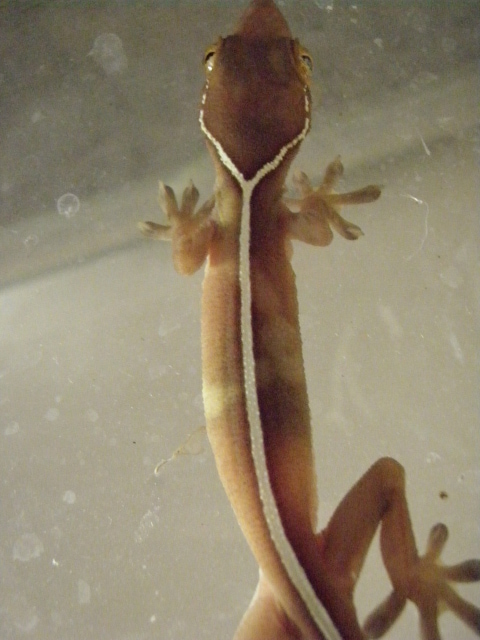 spots on gekko vittatus
Question
Spots foto
Hello, I have recently notic
spots on gekko vittatus
Question
Spots foto
Hello, I have recently notic
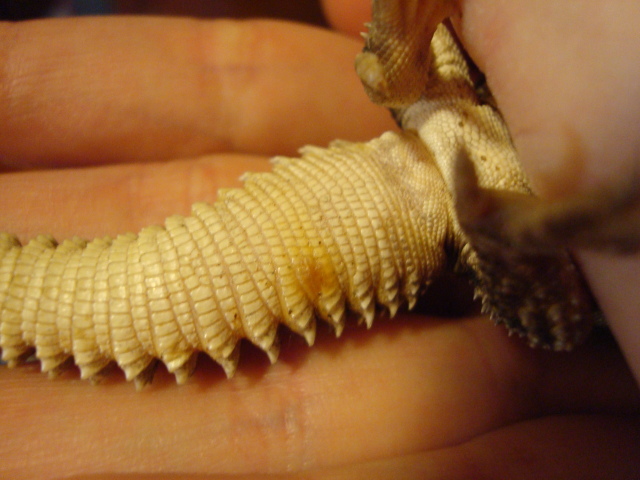 uromastyx sore
QuestionQUESTION: Last night I was handling my 6mo old
uromastyx sore
QuestionQUESTION: Last night I was handling my 6mo old
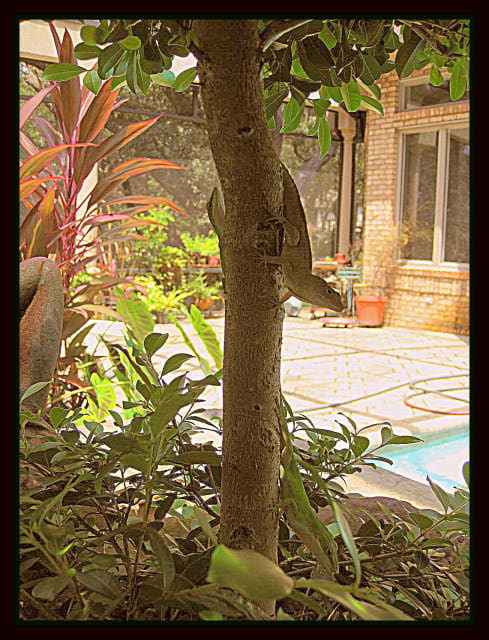 wild/not so wild green and brown anoles
Question
lizards "Pheobe"
Dear M
wild/not so wild green and brown anoles
Question
lizards "Pheobe"
Dear M
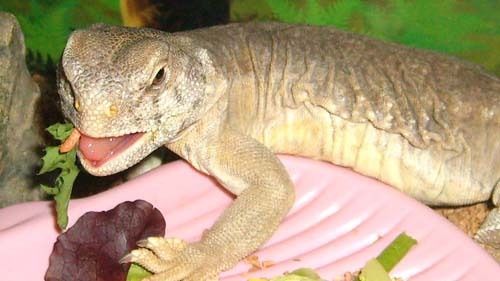 Suey has a new problem-Uncontrollable jerking
QuestionSuey eating veggies
QUESTION: Tracie,
Hi
Suey has a new problem-Uncontrollable jerking
QuestionSuey eating veggies
QUESTION: Tracie,
Hi
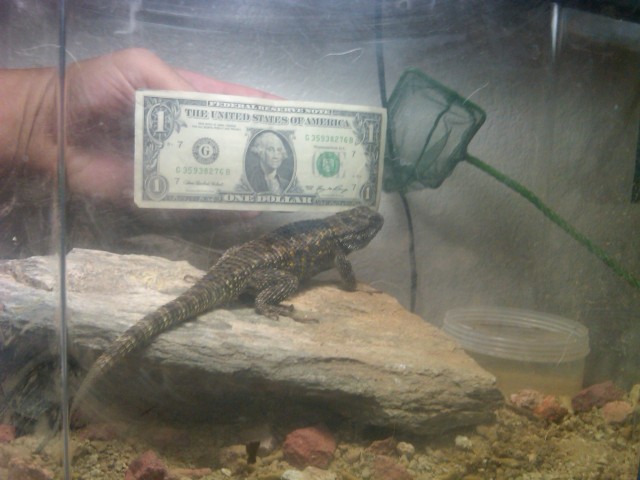 Wild Desert Spiny Lizard vs. My Cat
QuestionDesert Spiny Lizard
QUESTION: (Phoenix,
Wild Desert Spiny Lizard vs. My Cat
QuestionDesert Spiny Lizard
QUESTION: (Phoenix,